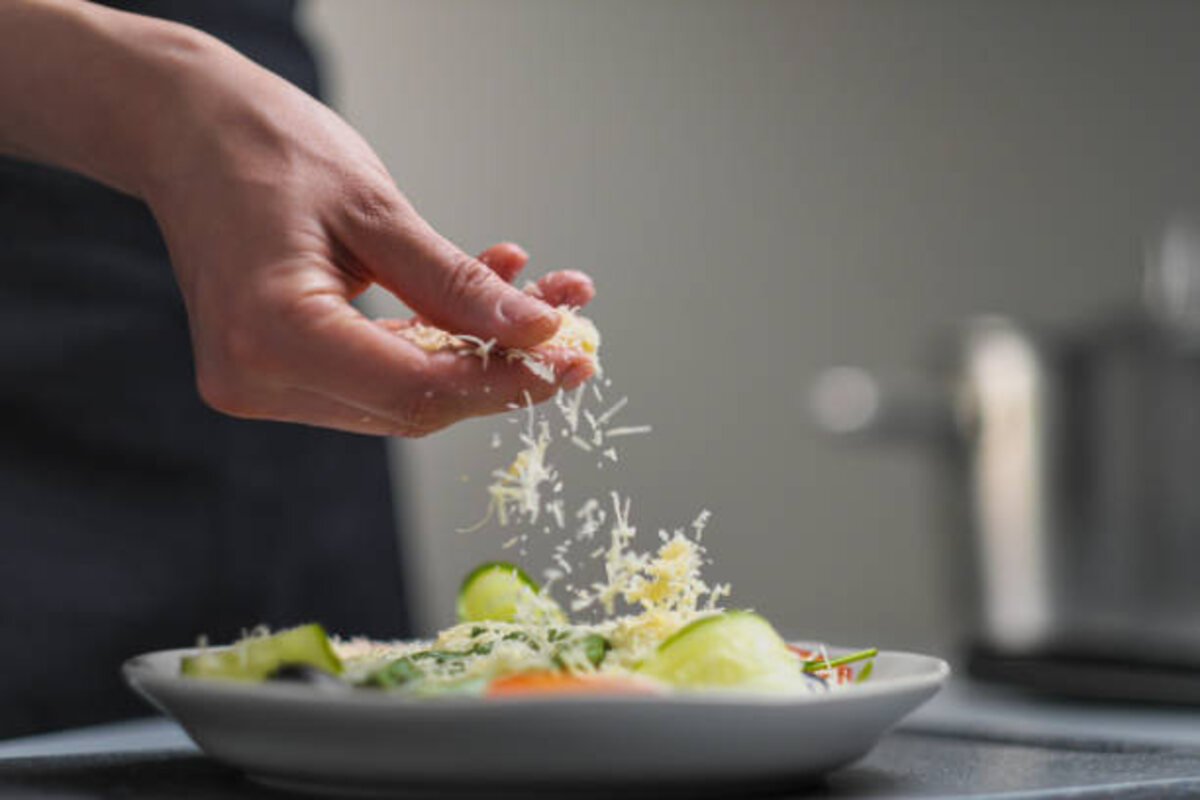A basic chicken salad provides the ideal foundation for adding elements, from nuts like almonds or walnuts, hard-boiled eggs, grapes, or seasonings such as onion powder or Worcestershire sauce.
Serve chicken salad over a bed of greens, on sandwiches, or in lettuce wraps – or as an easy and nutritious snack all on its own! It even makes an ideal appetizer!
Preparation
Chicken salad’s creamy mayonnaise is the glue that holds together its many different flavors and textures, such as lemon juice for brightness and ground black pepper for spice. Finish it off with crunchy celery for texture and balance of taste!
If you want to add something extra special to your chicken salad, consider roasting a few garlic cloves and mixing them into the dressing for an irresistibly rich and nutty taste. It will surely set it apart from its peers!
An effective way to add zesty flair to your chicken salad is with vinegar. Vinegar amplifies the flavors in each ingredient while giving a dish extra acidity if it lacks it. There are various varieties available; each offers something unique.
For optimal chicken salad preparation, labeling all its components is vitally essential. Food workers must use legible writing on labels and include basic details like date of preparation and storage instructions to ensure compliance with food safety guidelines and provide transparency to consumers – particularly important with foods like chicken salad with limited shelf-lives.
Mixing
Chicken salad recipes typically incorporate cooked shredded or diced chicken combined with an irresistibly creamy mayonnaise-based dressing, creating endless opportunities for creativity ranging from light and refreshing to rich and decadent variations.
Honey adds a natural sweetness that complements the richness of mayonnaise dressing and rounds out this dish’s flavors and aroma, complementing the subtle taste of chicken.
Another simple way to add variety and depth to a chicken salad’s taste is through exploring different vinegars. Milder varieties, such as rice and white wine vinegar, work best when kept simple; sherry or red wine vinegar provides more intensity, while balsamic or apple cider vinegar can add layers of fruitiness or sweet-and-sour notes.
Add the perfect finishing touch to your salad by sprinkling prepared horseradish or hot sauce for just the right amount of heat – without making it overpoweringly spicy! Its unique flavors pair beautifully with the dish’s chicken and other ingredients.
Toasting nuts before mixing them into a chicken salad can add extra texture and crunch; this step also ensures they retain their crunch after being combined with other ingredients.
Cooking
This classic chicken salad recipe is quick and simple enough for anyone to prepare, making it the ideal picnic food or particular lunch item. Serve on croissants or rye bread, in lettuce bowls, or as an appetizer with crackers or other finger foods; plus, it’s an excellent way to use leftover cooked chicken! To customize this dish further, add ingredients such as garlic powder or red wine vinegar for zestier flavors, while fresh dill or basil add fragrant, herbaceous aromas that complete this classic chicken salad!
The basic recipe for the chicken salad includes mayonnaise, chopped chicken, celery, onions, and Dijon mustard. Shredding or chopping up the chicken can be done using a food processor, stand mixer, or sharp knife – either way, the salad should be chilled before being enjoyed on a sandwich or bowl! Adding different vegetables like grilled corn or diced peppers adds another level to this delicious treat!
This recipe is straightforward and satisfying, yet its versatility allows endless variations to suit individual preferences. Feel free to experiment by adding nuts, hard-boiled eggs, fruit, or seasonings – or switch out some mayo for plain Greek yogurt to reduce calories!
Serving
Food workers must clearly and legibly label a chicken salad, including its date of preparation and any pertinent information, to ensure its safe consumption and compliance with regulatory guidelines. Furthermore, accurate storage instructions must be given to prevent bacteria growth and foodborne illness.
Food workers should also include allergen information for chicken salad on its label to enable consumers to make informed choices regarding their health. This is particularly important for individuals with dietary restrictions or allergies, as knowing which allergens exist can prevent potentially life-threatening reactions.
Food workers must ensure the packaging of chicken salad is airtight to preserve its freshness and prevent spoilage, particularly for items prepared in large batches to be gulped. Furthermore, the label should be placed prominently so consumers can quickly recognize and evaluate its freshness.
Assembling all that creamy goodness takes quite some work for the staff at Chicken Salad Chick in Tennessee, but one former employee on Indeed was quick to point out that visitors tend to be understanding when things get busy: “They understand you are working hard and won’t complain or stomp their feet about having to wait a little longer,” according to her experience.


